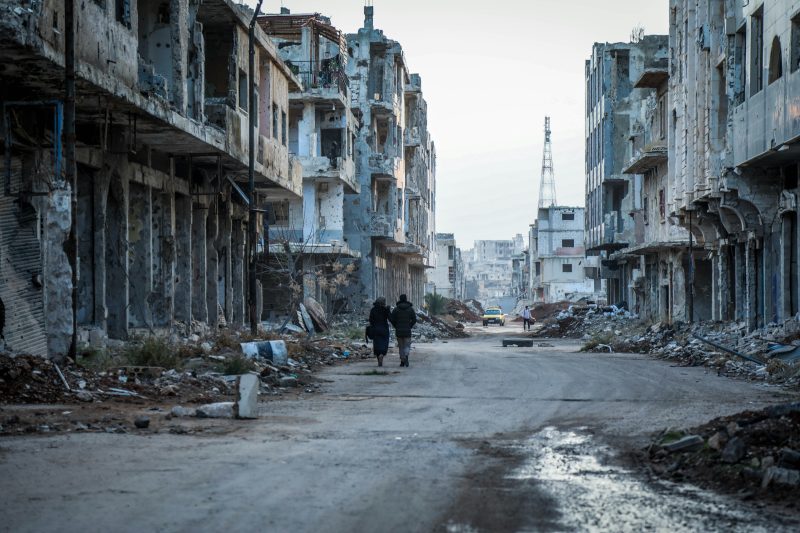Militarisation in a warming world
As governments ramp up defence spending, we explore how leaders could instead build real security through transition, not war

As climate breakdown accelerates, governments across Europe and North America are announcing what they call a “generational investment” in security. But instead of transforming economies to tackle the climate crisis, they are funnelling public wealth into weapons, surveillance, and military expansion.
This is not a green transition — it is militarisation: the reorganisation of entire economies around defence industries and geopolitical competition. This choice will have profound economic, environmental, and social consequences for a world already under stress.
The irony is stark. At the very moment when humanity needs unprecedented cooperation to prevent ecological collapse, the richest nations are doubling down on militarised strategies that deepen division and insecurity.
The New Atlantic Garrison
Led by the United States, NATO countries are dramatically increasing military spending, with most pledging to allocate at least 3.5% of GDP to defence. In the UK, this strategy is sold as a “whole-of-society mobilisation.”
Yet Europe already outspends Russia threefold on its militaries. The real aim is not defensive — it is to anchor European economies to a US-led military-industrial complex, with public investment and industrial strategy directed towards arms manufacturing rather than climate solutions.
“ Militarisation deepens global insecurity, entrenching Cold War divisions, escalating conflicts, and undermining cooperation on the shared challenge of climate breakdown.”
This is a deliberate economic choice. Defence contractors are lobbying hard for long-term procurement deals, locking governments into decades of spending. These commitments create powerful vested interests that make it harder to redirect resources toward renewable energy, resilient infrastructure, and social care.
Guns Instead of Green
The cost is enormous. Every pound or dollar spent on weapons is one not spent on just transition priorities: clean energy, housing, care, and community resilience.
In both the US and UK, social spending and foreign aid are being cut to fund military expansion. Far from providing widespread benefits, this approach channels public wealth to private shareholders — the financiers behind major defence contractors — while starving public services and green industries of investment.
This shift exposes a fundamental flaw in how we understand “security.” True security cannot come from militarised growth models, but from an economy that invests in people and planet.
Militarisation Fuels the Climate Crisis
Militaries are also direct drivers of climate instability. Armed forces already produce around 5.5% of global emissions — more than aviation and shipping combined — and military build-up threatens to push that share even higher.
Meanwhile, the minerals and materials needed for the green transition — lithium, cobalt, rare earths — are being absorbed into weapons production and data infrastructure. Every fighter jet or missile system represents resources diverted from solar panels, wind turbines, and battery storage.

“Greening the military” is not a credible solution. Fighter jets, tanks, and warships cannot be decarbonised. Even if they could, their purpose — projecting force and sustaining conflict — runs counter to the cooperative ethos required to address climate breakdown.
A New Vision for Security
Militarisation deepens global insecurity, entrenching Cold War divisions, escalating conflicts, and undermining cooperation on the shared challenge of climate breakdown. There is an alternative.
Real security comes from a just transition — ensuring people have access to energy, food, shelter, healthcare, and stable livelihoods in a safe climate. This requires redirecting investment from war to wellbeing, and from militarised economies to regenerative ones.
The Transition Security Project explores how societies can redefine security through collaboration, demilitarisation, and climate justice — creating a green and peaceful economy that truly keeps people safe. This means building coalitions across borders, converting parts of the defence industry to produce renewable technologies, and designing policies that prioritise human and ecological resilience over military dominance.
Security should not be measured by the size of an arsenal, but by the health of communities and ecosystems. In a warming world, the greatest threat is not an enemy state — it is the failure to act collectively for a livable future.
- Khem Rogaly, Patrick Bigger & Lorah Steichen, Transition Security Project. This piece is an edited version of Transition Security Project’s launch essay, available in full on their website. This version was edited by the Green Economy Coalition.


